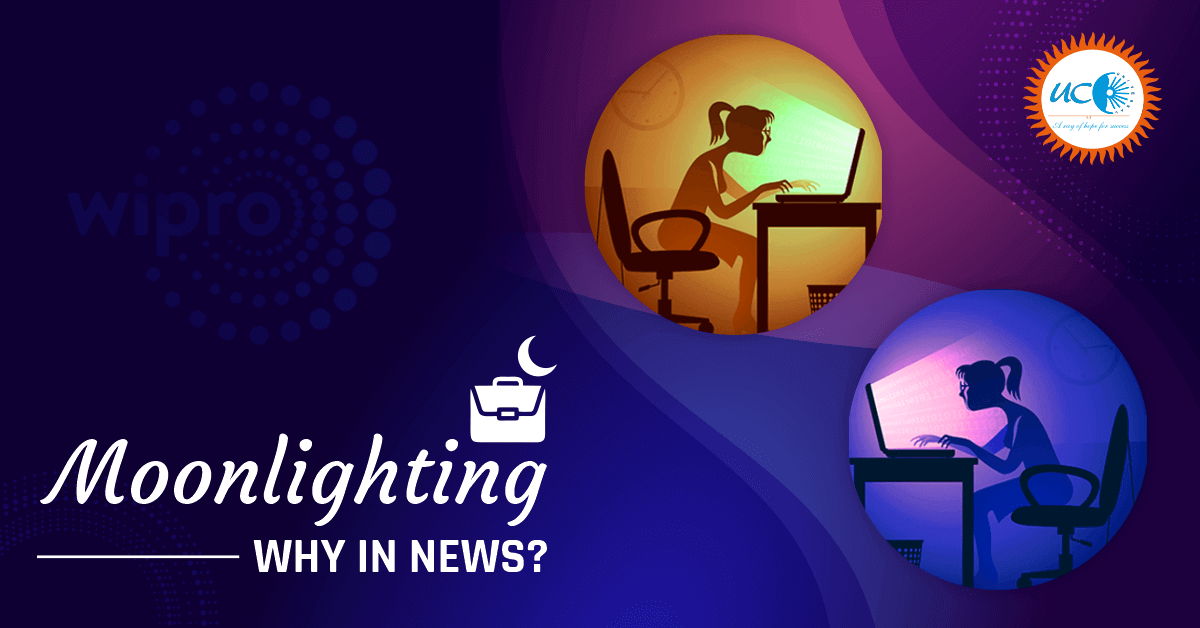UPSC Essentials: What is Moonlighting? Why in News?
What is Moonlighting?
- Moonlighting refers to the practice of taking up secondary jobs after regular work hours.
Why in News?
Recently, Moonlighting in Wipro made the company fire nearly 300 employees and Infosys warned its employees against moonlighting, threatening them with contract termination.
- Earlier, Swiggy announced an “industry first” policy that allowed moonlighting for its employees.
How this concept got the name “Moonlighting”?
The phrase “moonlighting” refers to working a covert job, particularly at night.
- The secondary job is taken without employers’ knowledge and is usually the side job taken at night or on the weekends.
- The phrase became well-known when Americans began looking for second jobs in addition to their regular 9-to-5 jobs to supplement their income.
Types of moonlighting: According to the HRM (Human Resources Management), Moonlighting is mainly divided into four. They are:
1. Blue Moonlighting
- Blue moonlighting is the term used to denote failed efforts at moonlighting.
2. Quarter Moonlighting
- Quarter moonlighting is the practice where an employee works in a part-time job after his regular job.
3. Half Moonlighting
- Half moonlighting is spending more time than required by a part-time job in an additional Job.
4. Full Moonlighting
- Full moonlighting is managing two full-time professions/jobs in parallel.
Reasons for Moonlighting:
- Work from Home Culture
- Impact of Covid-19
- Inflation
- To Gain Additional Work Experience
- To Combat Boredom
- Low salaries and incentives are not enough to maintain life standards
- Mass Layoffs and Hiring freezes
- Entrepreneurial spirit
For Moonlighting:
- Moonlighting allows workers to work for side projects once they finish their shift timings, without compromising on their primary employment.
- Gaining extra profits while also helping them hone their skills.
- Personal choice: After the company’s shift timings, a person is free to do whatever he/she wants to do as a passion project or side gig.
- Build a good profile: Many universities abroad consider such side projects as valuable for admission into professional courses.
Against Moonlighting:
- An employee is required and expected to give his entire working time, effort, and energy to the employer’s interest.
- Legal but may not be ethical: There is no overarching law that prohibits a person from doing multiple However, a person with a similar nature of jobs may spark breach of confidentiality issues.
- Not legal in some states: There restriction is on double employment under the Factories Act, but not applicable to IT companies in some states.
- Moonlighting turns to daylight: Side jobs may take away the employee’s productivity.
- Fear of leakage of confidential information of the primary job.
- Moonlighting clause: Some companies have introduced a moonlighting clause that puts a restriction on the double employment of an employee.





